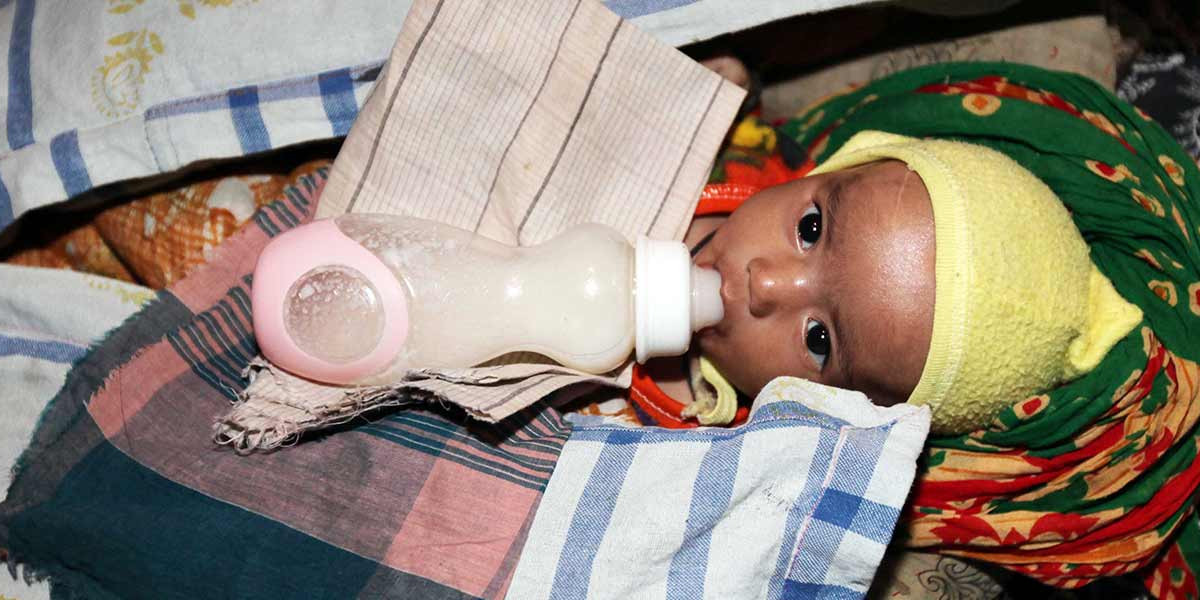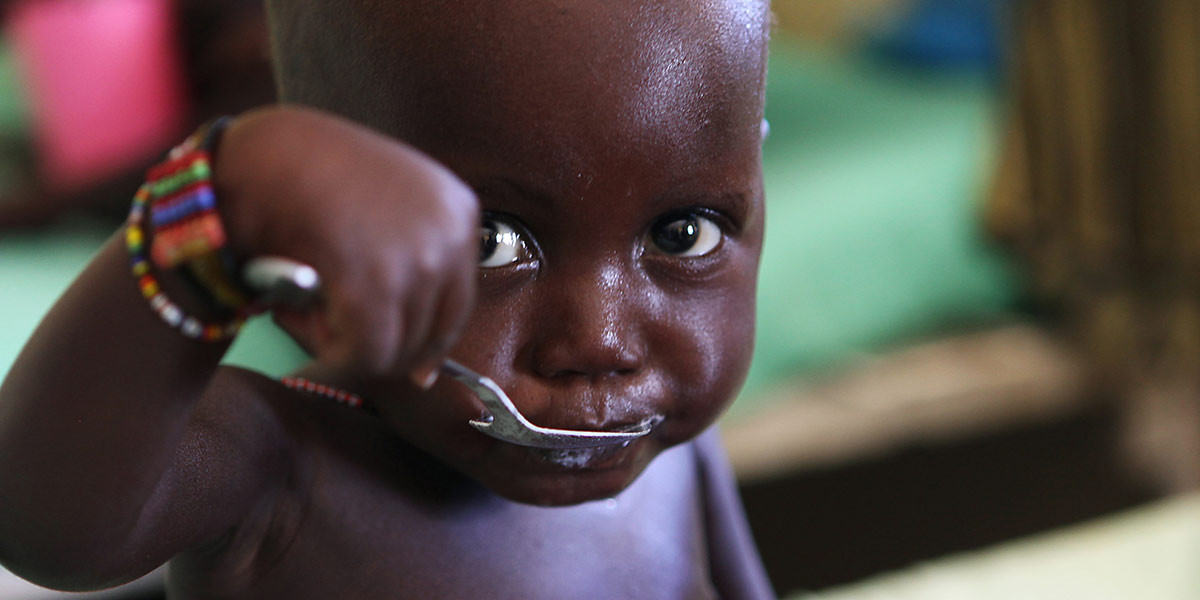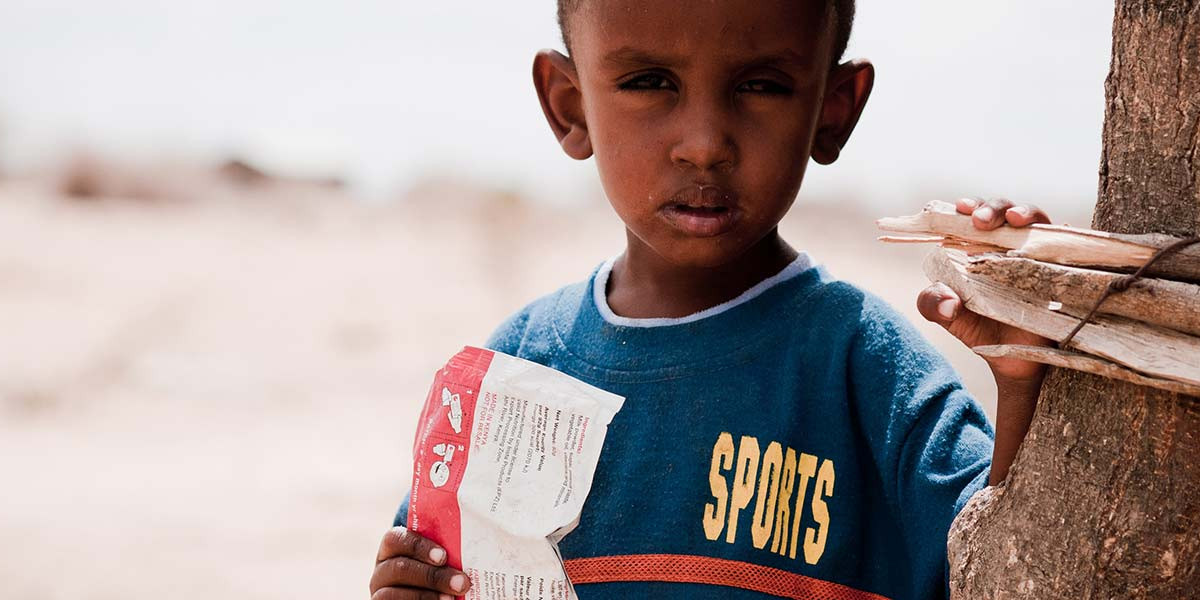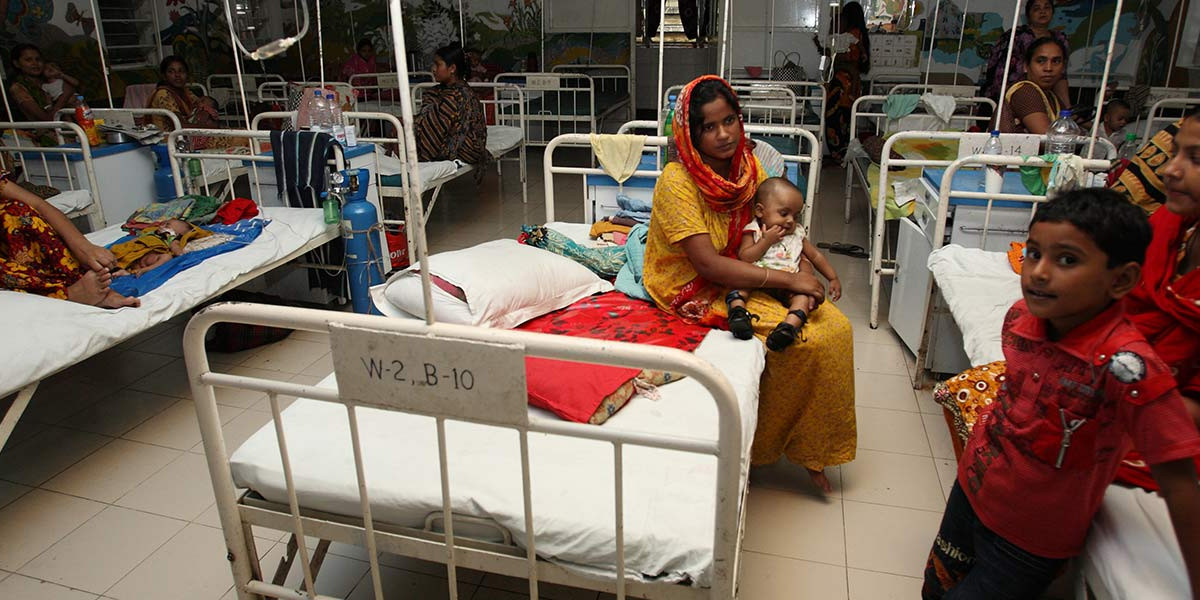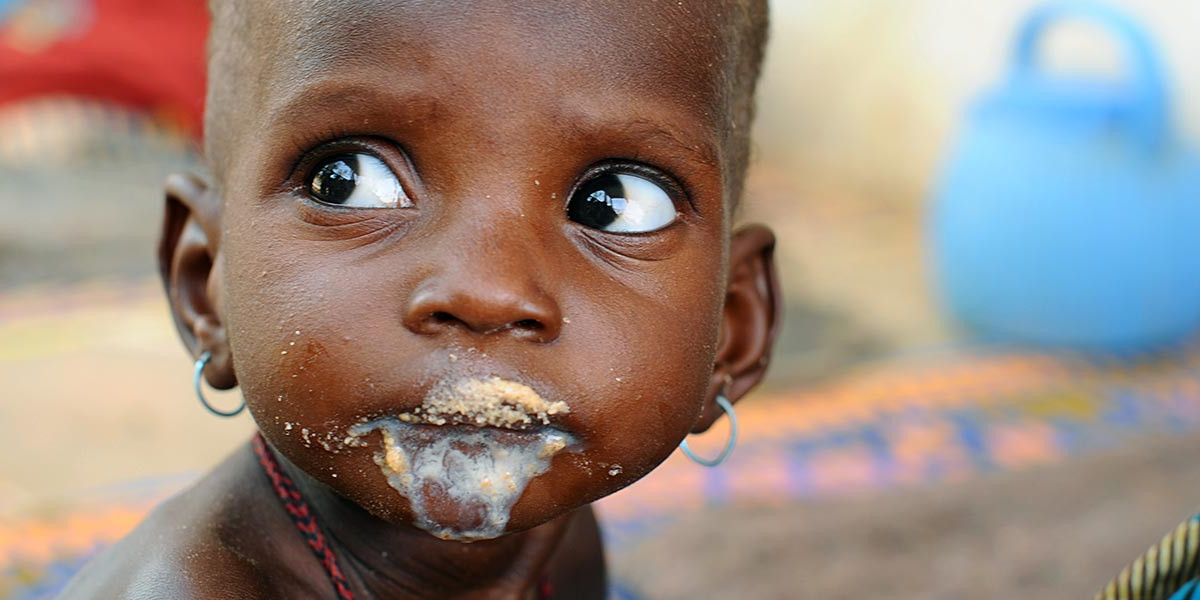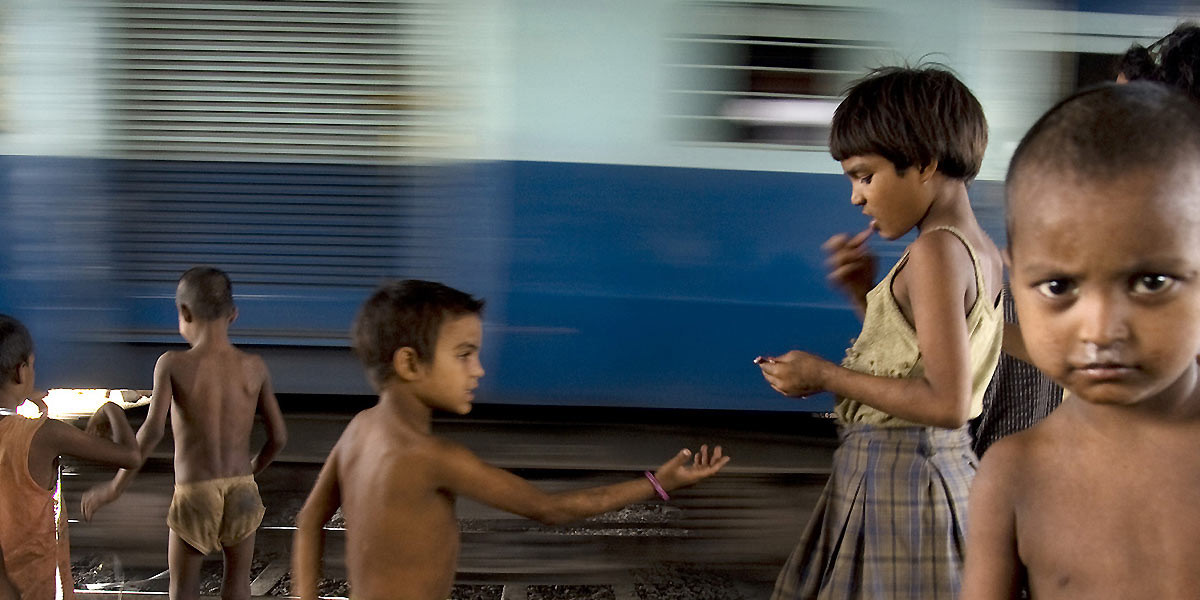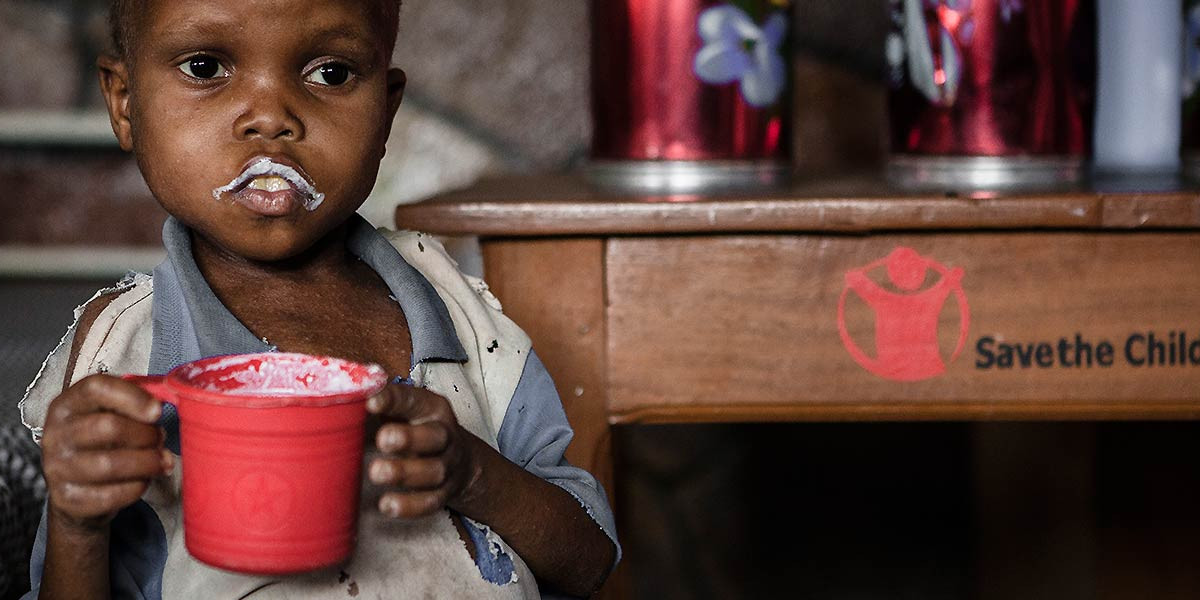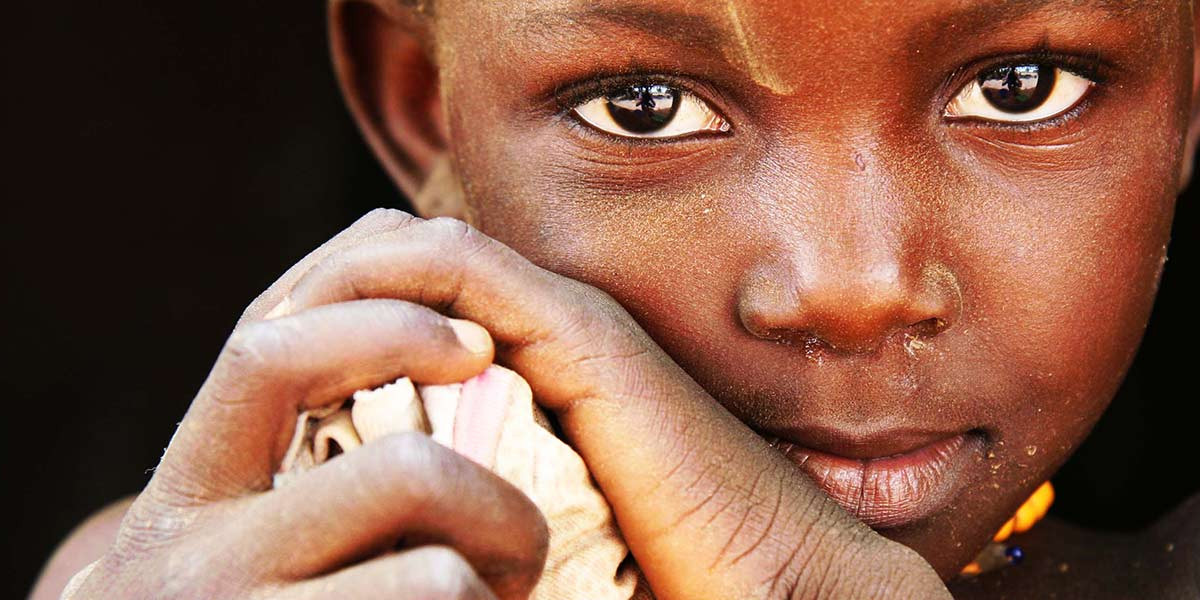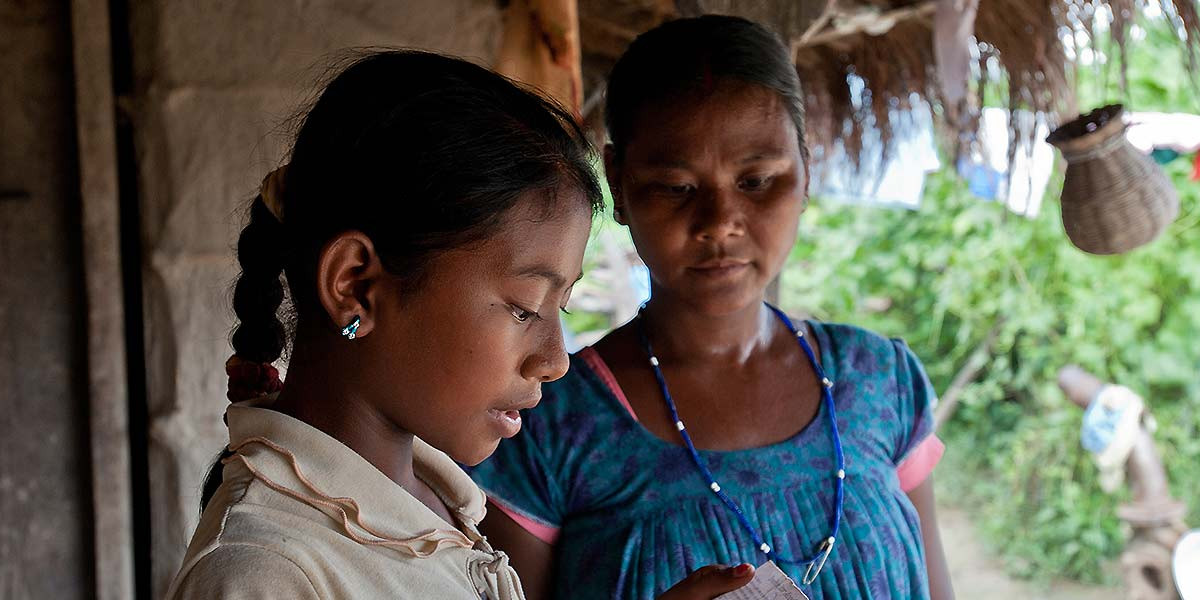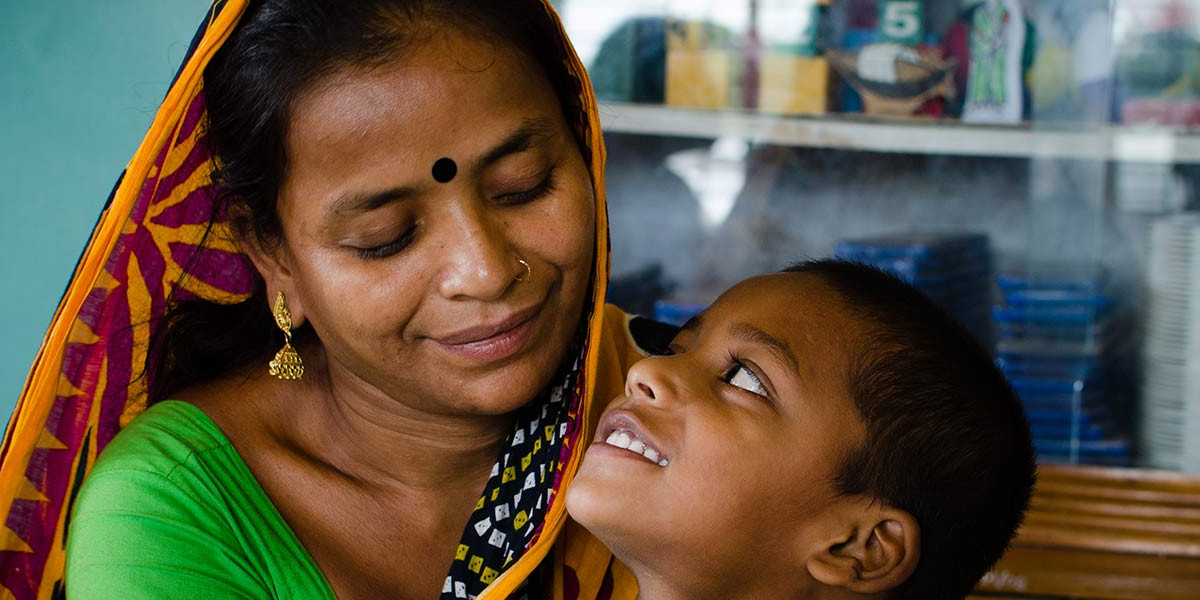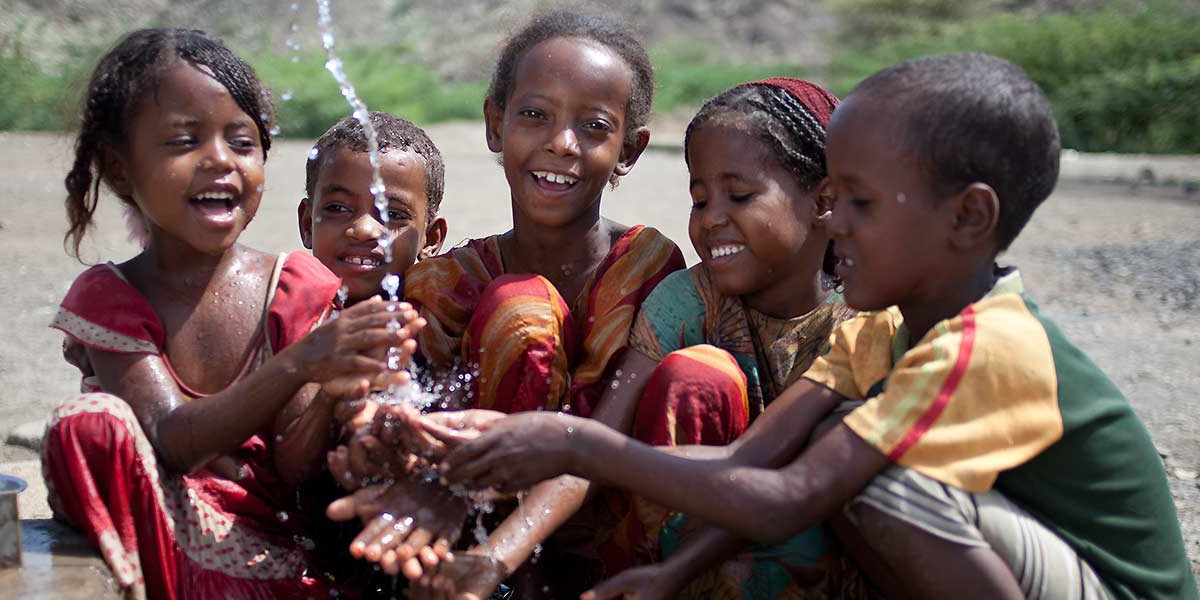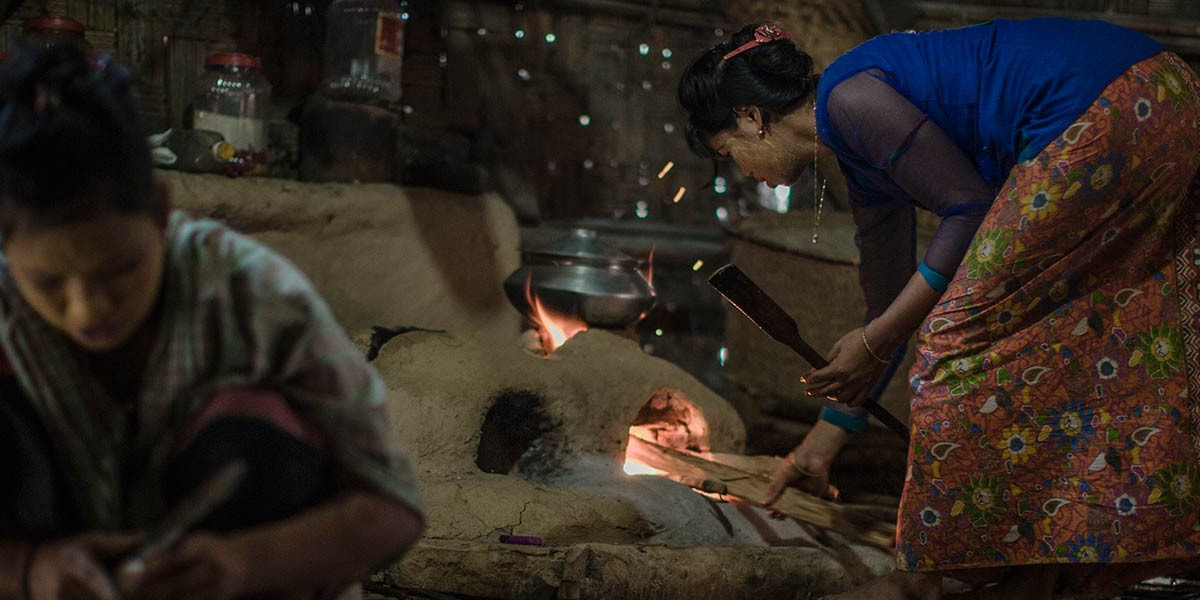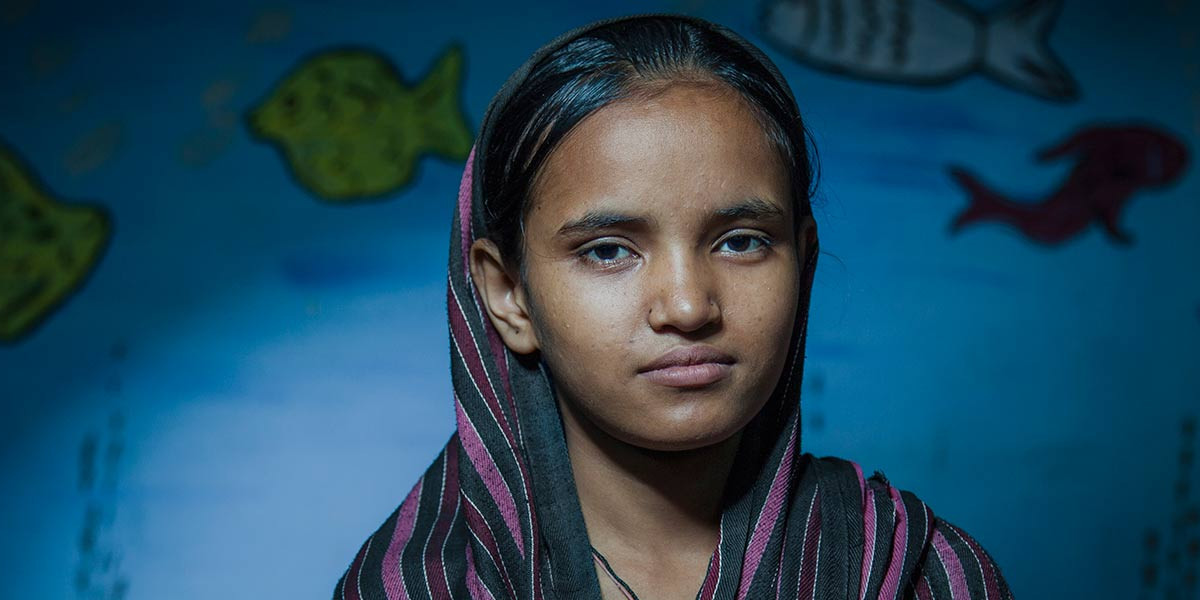Poverty is a severe and constant constraint shaping how children live, learn and grow. Millions of children around the world miss out on their childhood as a result of poverty.
Poverty deprives them of the capabilities needed to survive, develop and thrive. They are more likely to become malnourished, get sick, less likely to complete school, and more vulnerable to exploitation, abuse, violence, discrimination.
Hunger
Poverty is the principal reason so many people around the world are hungry. People living in poverty cannot afford nutritious food for their families. This makes them weaker and less able to earn money.
Hunger can have life-long consequences. Children who are chronically malnourished, or ‘stunted’, don’t just fail to thrive physically; they also fall behind in developing cognitive skills.
Millions of children face the everyday challenge of not knowing where their next meal is coming from—a situation that is exacerbated by persistent poverty, rising food prices, the effects of climate change and a growing gap between rich and poor.
The first 1000 days of a child's life from conception to two years are crucial for a child's physical and mental development. Children who are malnourished in the womb and during the first two years of life are often permanently mentally and physically damaged.
Child mortality
The first 1,000 days of a child’s life, from pregnancy to the age two, are critical. A balanced diet can protect children from the mental and physical effects of malnutrition.
Over a third of all deaths in children under the age of five in developing countries are linked to malnutrition.1
Hunger and malnutrition are the number one risk to health worldwide — greater than AIDS, malaria and tuberculosis combined. Deprived of the right nutrition, hungry children are especially vulnerable and become too weak to fight off disease and may die from common infections like measles and diarrhoea.
Boosting Literacy
Almost 800 million people around the world can’t read or write. Illiteracy means they are trapped in a cycle of poverty with limited opportunities for employment.
For poor children, a good education is the key to changing their lives and their futures. It can mean they have access to better jobs, lead richer lives and fulfill their potential. If all students left school with basic reading skills, 171 million people could be lifted out of poverty.4
Although many governments have eliminated the biggest obstacle to enrollment by abolishing school fees, other financial barriers such as uniforms, food, travel costs and exam fees still prevent the poorest, most disadvantaged children from going to school.
3 UNESCO (2015) “Adult and Youth Literacy”
4 UNESCO (2011) “Education Counts Towards the Millennium Development Goals”
Water and sanitation
Unclean water and a lack of basic sanitation are undermining efforts to end extreme poverty. It is estimated that every $1 spent on water and sanitation generates $4 in increased economic opportunity.6 Universal access to water and sanitation would result in an estimated $32 billion in economic benefits per year globally from reductions in health care costs and increased productivity from reduced illness. 7
A lack of reliable, clean water access also has deep socio-economic impacts. Women are more than twice as likely as men to be responsible for water collection. On average, women and girls in developing countries walk six kilometres each day to collect water8 – time which could be spent in school or at work. More than half of the girls who drop out of primary school in sub-Saharan Africa do so because of a lack of separate toilets and easy access to safe water.9
5 UNICEF and WHO (2015) "Progress on Sanitation and Drinking Water"
6 WHO (2012) “Global costs and benefits of drinking-water supply and sanitation interventions to reach the MDG target and universal coverage”
7 Ibid.
8 UN Human Rights Commission (2010) “The Right to Water”
9 The ONE Campaign "Water and Sanitation"
Building a better life
Supporting sustainable agricultural practice is twice as effective in reducing poverty as supporting growth in any other sector. We are working with partners to invest in local communities by sharing skills, technology, farming knowledge and other agricultural resources to help families take charge of their futures. By adopting productive, sustainable and resilient crop and livestock production practices, parents can improve their economic wellbeing, helping to eliminate child poverty so that their children can face the future with hope.
Supporting parents is key to fighting poverty. By improving the knowledge and skills within a community, jobs are created, providing more stable sources of income and giving people more access to health, education and opportunities to create a better life for children and their families.

We share a vision
A world where all children have the chance to grow up free from poverty, deprivation and exclusion.
Donate now

